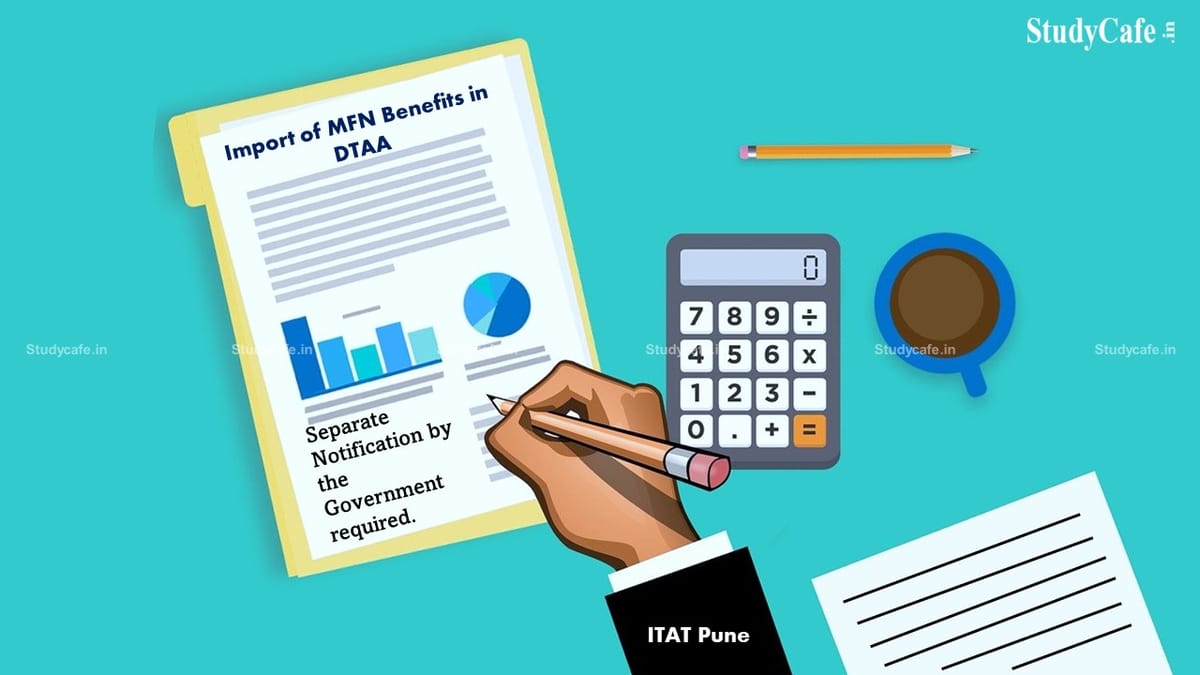No Retrospective Effect of CBDT Circular, Import of MFN Benefits in DTAA Requires Separate Notification by the Government: ITAT Pune
Sushmita Goswami | Feb 21, 2022 |

No Retrospective Effect of CBDT Circular, Import of MFN Benefits in DTAA Requires Separate Notification by the Government: ITAT Pune
The Income Tax Appellate Tribunal (ITAT) of Pune has ruled that the Central Board of Direct Taxes (CBDT) Circular, requiring special notification by the government for importing the advantage of the Most Favoured Nation (MFN) into the Double Taxation Avoidance Agreement, has no retroactive impact (DTAA).
GRI Renewable Industries S.L., the assessee, is a foreign corporation based in Spain. The return declared a total income of Rs.2,88,38,464/-, which included a payment of Rs.2,25,29,742/- from M/s. Shrenik Industries Pvt. Ltd. for technical support, financial support and advice, legal support, commercial support, and other services, and a payment of Rs.63,08,722/- for SAP software and process model implementation. The assessee claimed that the aforesaid amounts were “fees for technical services” and “royalties,” and that they were covered by Article 13 of the DTAA.
The assessee claimed that the above gross receipts of ‘royalties’ and ‘fees for technical services’ were taxable at 10% instead of 20% as provided in the DTAA, based on the Protocol to the DTAA’s Most Favoured Nation (MFN) clause and Article 12 of the Double Taxation Avoidance Agreement between India and Portugal (Portuguese DTAA). The AO did not object to the quantity or nature of the assessee’s income.
He did, however, hold that the assessee’s tax rate of 10% under the Portuguese DTAA could not be applied because section 90(1) clearly requires the Government of India to issue the requisite Notification. It is necessary to notify the importation of an MFN clause from another DT A A with a lower rate of tax or a smaller scope of definition of a clause. The AO held that the benefit of the relevant Article of the Portuguese DTAA was not available to the assessee in terms of the Protocol because there was no notification of the MFN clause from the Portuguese DTAA. As a result, the ‘fees for technical services’ and ‘royalty’ were chargeable to tax at 10% plus applicable Surcharge and Education Cess in terms of section 115A of the Act, which was more beneficial than the DTAA’s 20% rate of tax. The Dispute Resolution Panel offered no assistance.
In the final assessment order, the AO charged ‘fees for technical Services’ and ‘royalty’ at 10% + relevant Surcharge and Education Cess u/s.115A of the Act, as opposed to the DTAA’s 20% straight rate. The assessee has filed an appeal with the Tribunal, claiming that he has been wronged.
A act of law that imposes a new obligation or attaches a new disability is considered prospective unless the legislative intent is plainly to give it a retrospective effect, according to the coram.
“We are faced with a circular, much less a change to the enactment, that adds a new disability of a separate notification for importing the benefits of a second-state agreement into the treaty with the first-state. Obviously, such a Circular cannot be applied retroactively to transactions that occurred prior to its release. In light of the aforementioned debate, we are satisfied that the requirement of a separate notification for implementing the MFN provision, as per the recent CBDT circular dt. 03-02-2022, cannot be invoked for the year under consideration,” the ITAT stated.
To Read Judgement Download PDF Given Below:
In case of any Doubt regarding Membership you can mail us at contact@studycafe.in
Join Studycafe's WhatsApp Group or Telegram Channel for Latest Updates on Government Job, Sarkari Naukri, Private Jobs, Income Tax, GST, Companies Act, Judgements and CA, CS, ICWA, and MUCH MORE!"